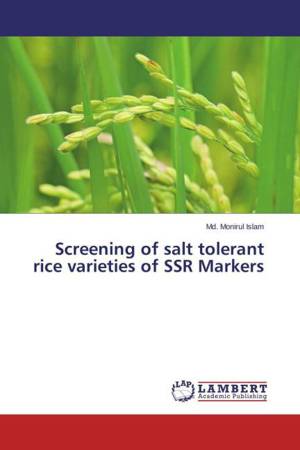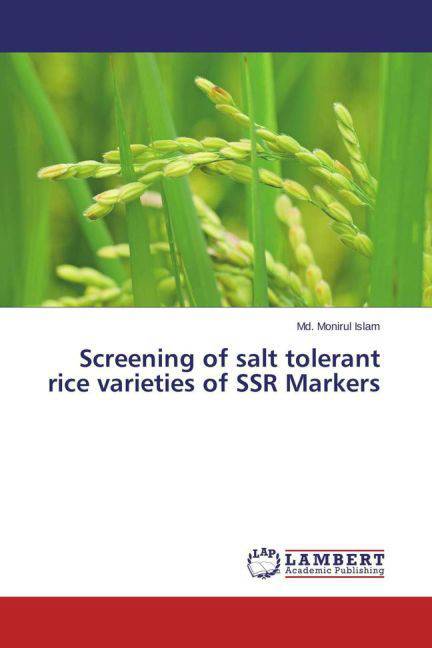
- Afhalen na 1 uur in een winkel met voorraad
- Gratis thuislevering in België vanaf € 30
- Ruim aanbod met 7 miljoen producten
- Afhalen na 1 uur in een winkel met voorraad
- Gratis thuislevering in België vanaf € 30
- Ruim aanbod met 7 miljoen producten
€ 39,95
+ 79 punten
Omschrijving
Molecular markers especially, microsatellite or simple sequence repeats (SSRs) was the marker aided selection (MAS) technique utilized to determine salinity tolerance in rice. It accelerates rice breeding process by significantly improving selection efficiency. Fourty varieties were used to study the effect of salt stress on seedling growth and efficiency of SSR markers for the screening of salt tolerant varieties. Phenotyping of the varieties at the seedling stage was done using salinized (EC=12ds/m) culture solution under controlled conditions at the Bangladesh Institute of Nuclear Agriculture (BINA) glasshouse. Salt tolerant varieties showed stunted growth with the reduction of leaf area over the varieties of non-saline conditions. The seedlings grown from the normal seeds were vigorous than the seedlings from the seeds of saline conditions. This result indicated the impediment of seed vigor due to salt stress.
Specificaties
Betrokkenen
- Auteur(s):
- Uitgeverij:
Inhoud
- Aantal bladzijden:
- 52
- Taal:
- Engels
Eigenschappen
- Productcode (EAN):
- 9783659745027
- Verschijningsdatum:
- 16/06/2015
- Uitvoering:
- Paperback
- Afmetingen:
- 150 mm x 220 mm
- Gewicht:
- 91 g

Alleen bij Standaard Boekhandel
+ 79 punten op je klantenkaart van Standaard Boekhandel
Beoordelingen
We publiceren alleen reviews die voldoen aan de voorwaarden voor reviews. Bekijk onze voorwaarden voor reviews.











